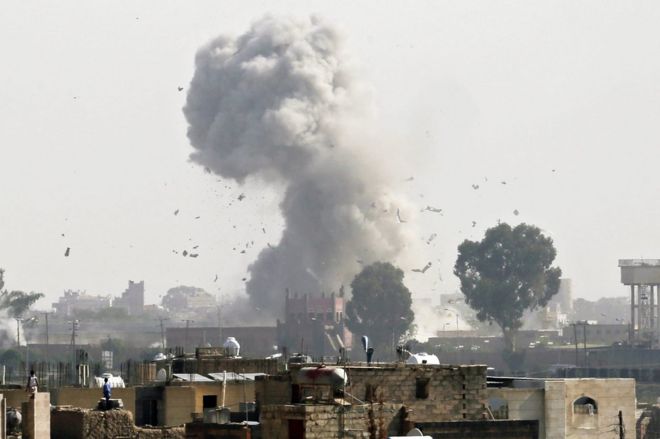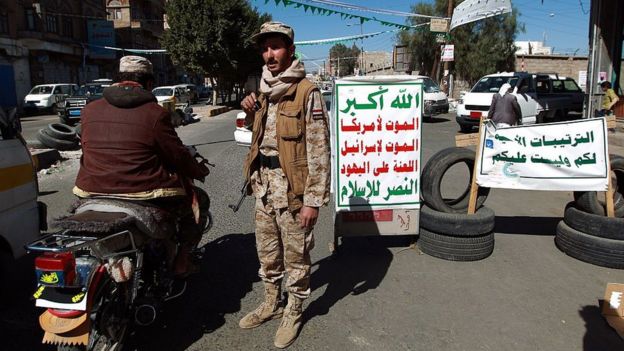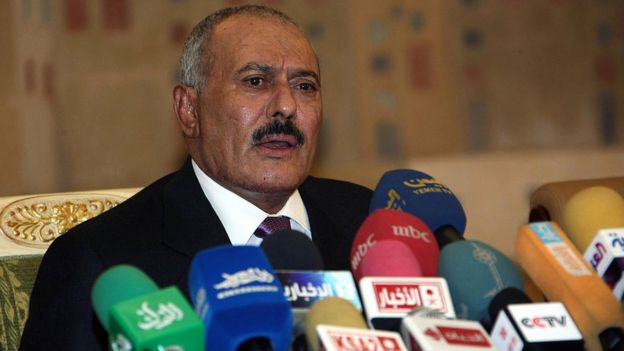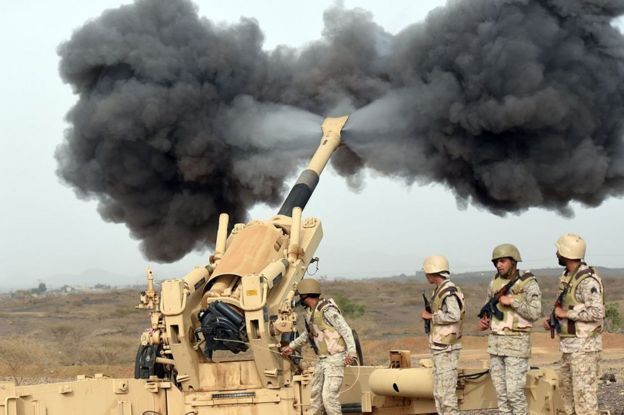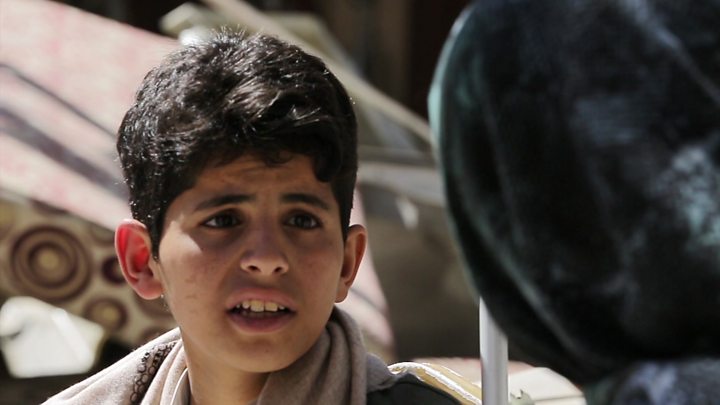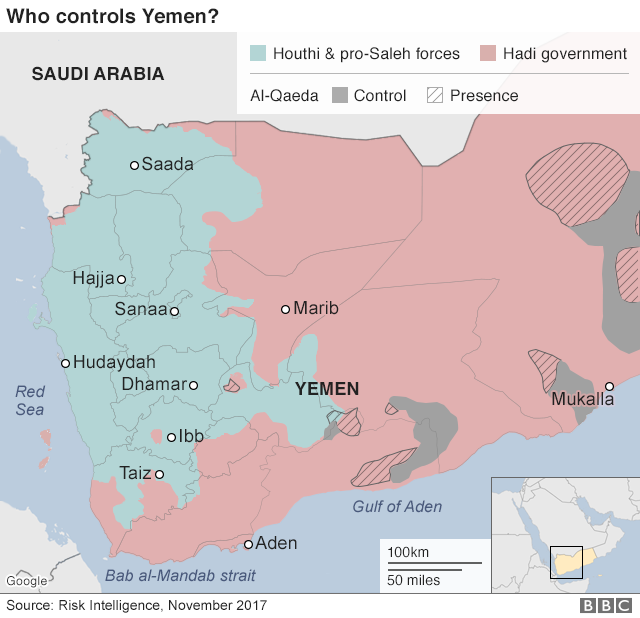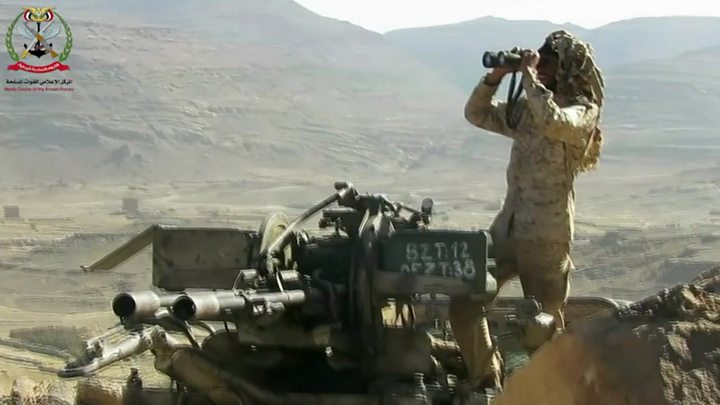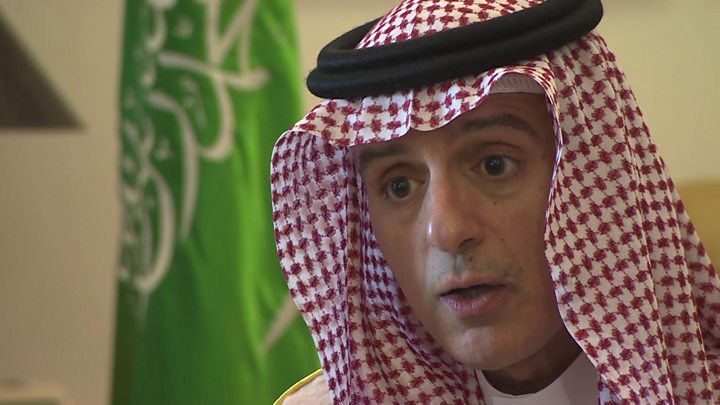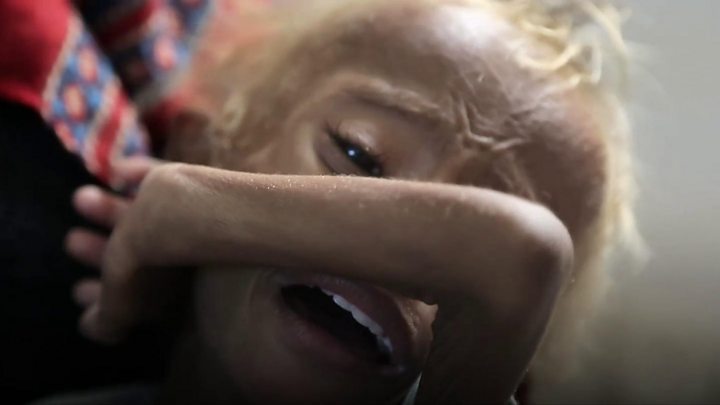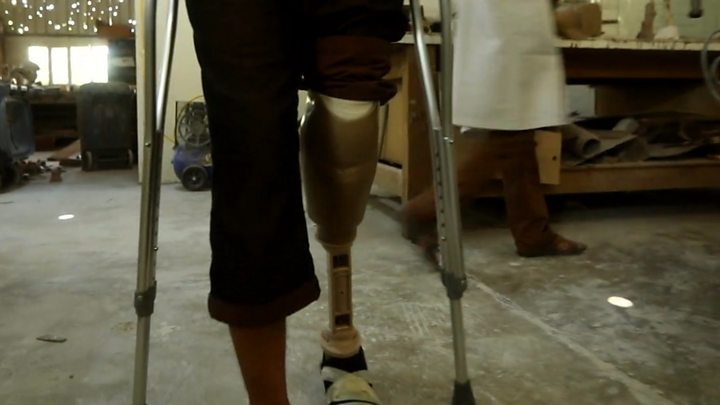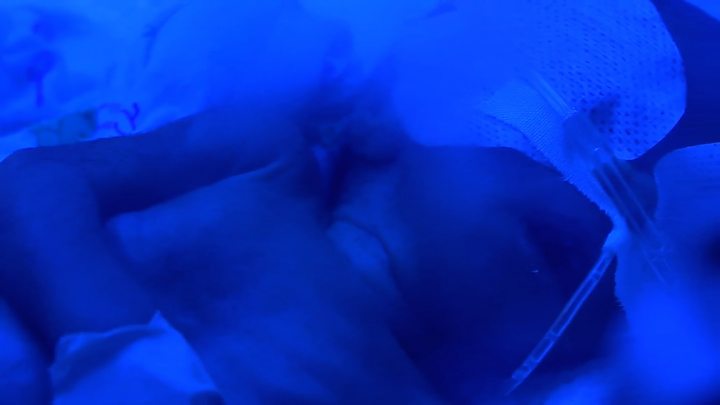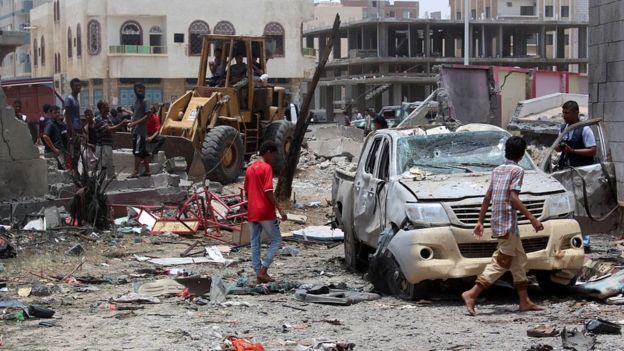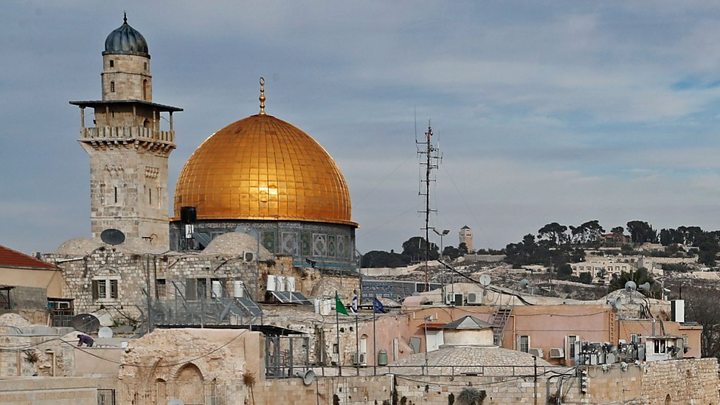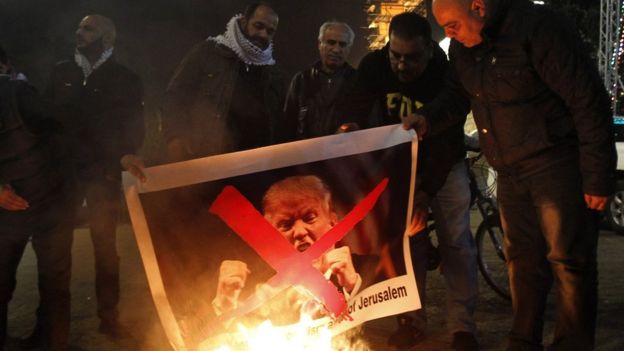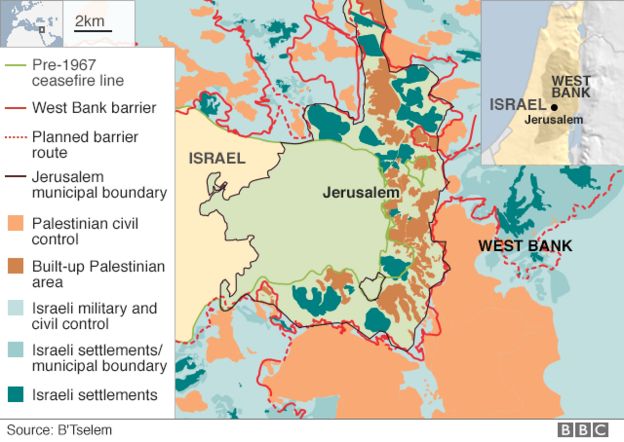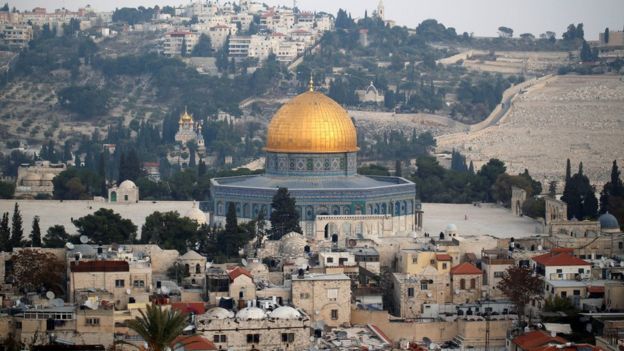Yemen crisis: Who is fighting whom?
Related Topics
Image copyrightEPA
Image captionMore than 60% of civilian deaths have been the result of Saudi-led air strikes, the UN says
Yemen, one of the Arab world's poorest countries, has been devastated by a war between forces loyal to the internationally-recognised government of President Abdrabbuh Mansour Hadi and those allied to the Houthi rebel movement.
More than 8,600 people have been killed and 49,000 injured since March 2015, many of them in air strikes by a Saudi-led multinational coalition that backs the president.
The conflict and a blockade imposed by the coalition have also left 20 million people in need of humanitarian assistance and created the world's largest food security emergency.
Although neither side appears close to achieving a military victory, in December cracks began to appear in the alliance fighting Mr Hadi's forces, which could potentially augur a fresh effort at negotiating an end to the war.
How did the war start?
Image copyrightAFP
Image captionHouthi rebel fighters entered Sanaa in September 2014 and took full control in January 2015
The conflict has its roots in the failure of a political transition supposed to bring stability to Yemen following an uprising that forced its longtime authoritarian president, Ali Abdullah Saleh, to hand over power to Mr Hadi, his deputy, in 2011.
Mr Hadi struggled to deal with a variety of problems, including attacks by al-Qaeda, a separatist movement in the south, the continuing loyalty of many military officers to Mr Saleh, as well as corruption, unemployment and food insecurity.
Image copyrightAFP
Image captionAli Abdullah Saleh was forced to hand over the presidency after an uprising in 2011
The Houthi movement, which champions Yemen's Zaidi Shia Muslim minority and fought a series of rebellions against Mr Saleh during the previous decade, took advantage of the new president's weakness by taking control of their northern heartland of Saada province and neighbouring areas.
Disillusioned with the transition, many ordinary Yemenis - including Sunnis - supported the Houthis and in September 2014 they entered the capital, Sanaa, setting up street camps and roadblocks.
In January 2015, the Houthis reinforced their takeover of Sanaa, surrounding the presidential palace and other key points and effectively placing Mr Hadi and his cabinet ministers under house arrest.
The president escaped to the southern port city of Aden the following month.
Image copyrightAFP
Image captionA Saudi-led multinational coalition intervened in the conflict in Yemen in March 2015
The Houthis and security forces loyal to Mr Saleh then attempted to take control of the entire country, forcing Mr Hadi to flee abroad in March 2015.
Alarmed by the rise of a group they believed to be backed militarily by regional Shia power Iran, Saudi Arabia and eight other mostly Sunni Arab states began an air campaign aimed at restoring Mr Hadi's government. The coalition received logistical and intelligence support from the US, UK and France.
What's happened since then?
Media captionThe Saudi bombing of a funeral using US weapons killed 140 people in October
What followed was two-and-a-half years of fighting which appears to have entrenched both sides, while three UN-organised efforts to negotiate a peace deal have failed.
Pro-government forces - made up of soldiers loyal to President Hadi and predominantly Sunni southern tribesmen and separatists - were successful in stopping the rebels taking Aden, but only after a fierce, four-month battle that left hundreds dead.
Having established a beachhead, coalition ground troops landed in Aden that August and helped drive the Houthis and their allies out of much of the south over the next two months. Mr Hadi's government established a temporary home in Aden, although most cabinet members remained in exile.
Media captionThe BBC's Nawal Al-Maghafi visits the front line of the Yemen army's battle for the capital of Yemen
The Houthis meanwhile have not been dislodged from Sanaa, and have been able to maintain a siege of the southern city of Taiz and to fire mortars and missiles across the border with Saudi Arabia.
Jihadist militants from al-Qaeda in the Arabian Peninsula (AQAP) and rival affiliates of so-called Islamic State (IS) have meanwhile taken advantage of the chaos by seizing territory in the south and continuing to carry out deadly attacks, notably in government-controlled Aden.
Media captionSaudi Foreign Affairs Minister Adel al-Jubeir: "No country has provided more aid to Yemen than Saudi Arabia".
The launch of a ballistic missile towards Riyadh in November 2017 prompted the Saudi-led coalition to tighten its blockade of Yemen.
The coalition said it wanted to halt the smuggling of weapons to the rebels by Iran - an accusation that officials in Tehran denied - but the UN said the restrictions could trigger "the largest famine the world has seen for many decades".
Why is there a rift between the rebels?
For months there have been suggestions that the delicate alliance between the Houthi movement and Mr Saleh's supporters was under strain, and at the end of November and start of December there were a series of events which could prove to be significant.
On 29 November, fighting erupted in Sanaa between the erstwhile allies. With both sides blaming each other for the rift, on 2 December Mr Saleh appeared on television to tell the Saudi-led coalition that he was open to turning a "new page" in relations.
He called upon the coalition to stop air attacks and loosen its blockade on the country and offered fresh talks - an offer welcomed by the Saudi-led coalition but that prompted accusations of betrayal from Houthi rebels.
Analysts say it is unsurprising that the grouping of forces against Mr Hadi has proven fragile, given the Houthis' historical rebellions under Mr Saleh's presidency and that Mr Saleh was once a friend of the Saudis.
What's been the impact on civilians?
Media captionWatch: What happened to Saleem?
Civilians have borne the brunt of the fighting and repeatedly been the
victims of what UN Human Rights Council has called "unrelenting violations of international humanitarian law".
By 29 October 2017, at least 5,159 civilians - more than 20% of them children - had been killed and 8,761 others injured, according to the UN. Saudi-led coalition air strikes were the leading cause of child casualties as well as overall civilian casualties.
Media captionInside Yemen's industrial-scale prosthetic limb factory
The destruction of civilian infrastructure and restrictions on food, medicine and fuel imports have also caused
what the UN has "catastrophic" humanitarian situation.
More than 20 million people, including 11 million children, are in need of urgent humanitarian assistance. Some 17 million people do not know where their next meal is coming from and 7 million are totally dependent on food assistance. Severe acute malnutrition is threatening the lives of almost 400,000 children.
Media captionThe BBC's Clive Myrie reports from one hospital on the brink of running out of fuel
At least 14.8 million are without basic healthcare.
Only 45% of the 3,500 health facilities are fully functioning. They have struggled to cope with
the world's largest cholera outbreak, which has resulted in more than 913,000 suspected cases and 2,196 deaths since April 2017.
Two million Yemenis are currently internally displaced due to the conflict and 188,000 others have fled to neighbouring countries.
Why should this matter for the rest of the world?
Image copyrightAFP
Image captionSuicide bombings claimed by so-called Islamic State have killed dozens of people in Aden
What happens in Yemen can greatly exacerbate regional tensions. It also worries the West because of the threat of attacks emanating from the country as it becomes more unstable.
Western intelligence agencies consider AQAP the most dangerous branch of al-Qaeda because of its technical expertise and global reach, and the emergence of IS affiliates in Yemen is a serious concern.
The conflict between the Houthis and the government is also seen as part of a regional power struggle between Shia-ruled Iran and Sunni-ruled Saudi Arabia.
Gulf Arab states have accused Iran of backing the Houthis financially and militarily, though Iran has denied this, and they are themselves backers of President Hadi.
Yemen is strategically important because it sits on the Bab al-Mandab strait, a narrow waterway linking the Red Sea with the Gulf of Aden, through which much of the world's oil shipments pass.

